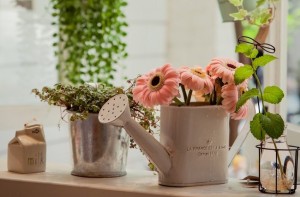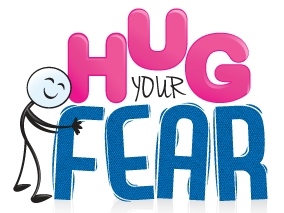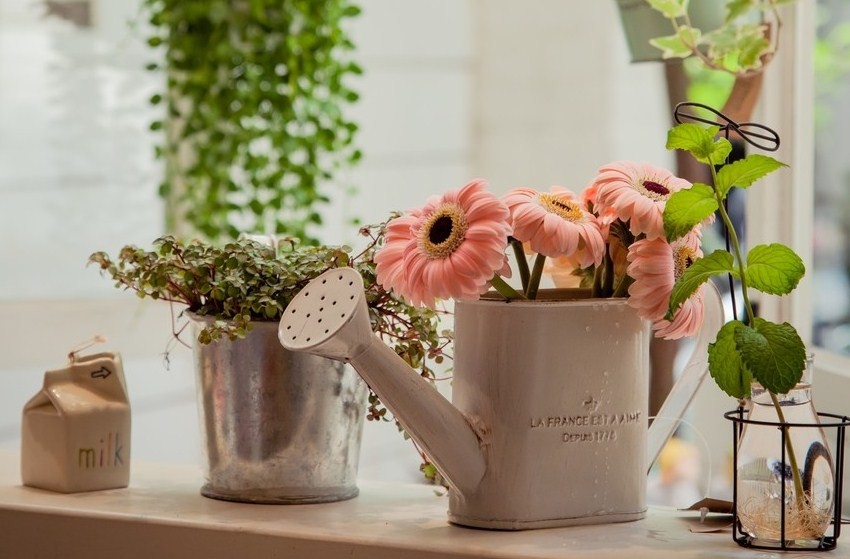[quote align=”center” color=”#0070B4″]“I think fear is very healthy if you just learn how to use it to your advantage.” – Lindsey Swett[/quote]

Lindsey Swett is the owner of Niche Urban Garden Supply in Boston, Massachusetts. Lindsey sat down with me to talk about some of the fears she had going into opening her store and how she handles fear on a day to day basis as an entrepreneur.
V: What made you decide to open Niche?
L: I lived in the South End for about four years and I gardened with my husband. I was doing landscape architecture; at the time I was working for a firm. I’ve always been into horticulture. When I was younger I thought it would be cool to open a garden center so it was something that had been in the back of my mind for a really long time. But as I was gardening in the South End (in Boston, Massachusetts) and realizing that there was nothing nearby to support that and just seeing all the community gardens, I thought that perhaps there was an opportunity. It seemed like a good fit for the market and just fortunate that I was able to try it out and see how it goes.
V: So you saw a need and you matched it with what you liked to do?
L: Yeah, I definitely always thought I might do it someday. In my mind it was something I thought I would do much later in life, but the need presented itself. Well actually I was laid off from my job too so that was the “Well, it’s now or never.” I was thinking about it when I was laid off and I was like “Let’s do it.” But it actually took a year to find a property and get the ball rolling on it. That was frustrating.
V: When I asked you to talk with me you mentioned that you were more anxious than afraid.
L: I always lumped it all together, honestly. I guess you could have a fear of failure, but you cannot think you’re gonna fail or you’d never get to the point of opening a business. You’d never get the door opened if you’re that afraid. So I guess I felt it was a little more anxiety, just constant worry. But those are the things I think drive you and allow you to put what’s important in focus and help you prioritize. At least for me, just try to channel it, making myself do what I’m most nervous about first.
V: What would you say you were most anxious about?
L: There’s so many things! Opening a store. Am I hallucinating? Is this a good idea? Am I totally misinterpreting the market? Do I have the appropriate taste to provide the South End with things for the garden and home? Am I gonna make a fool of myself? Am I just gonna totally flop? Are people gonna walk in and think “this is stupid and I don’t like anything” and leave? Am I not gonna make any money for two years? Those are just some of the things that were very alarming.
V: What kind of things do you do to help you move through those anxieties to actually open a store and keep it running even though you might still be anxious?
L: I was really fortunate. I had taken a course on opening a business through the Center for Women and Enterprise. Through that I met a group of other female entrepreneurs and we’ve been meeting monthly for a year now just to talk about all of our fear and anxiety and that’s been incredible just knowing that other people are going through the exact same thing and it’s not solely your problem. It’s just a relief to know that other people are dealing with it and I think women in general have this insecurity, we’re a little bit more concerned with what others think, for better or for worse. There was definitely a support network that I think was the best thing that I could have had. ‘Cause I still don’t feel like I ever know what I’m doing, even though it’s working. I still need rely on other people like my husband and my friends who allow me to take a step back or I guess they do it for me. They’re able to say, “Look, it’s working, here’s what you’re doing right, just chill out.”
V: The power of other people is really great. Would you say that the things that you were anxious about when you started are the same or different than now when you’re in the middle of it?
L: I think it evolves. I think you get a handle on some things. It’s sort of like baby steps, like everything’s new when you first start. And then after, I guess I think more in terms of seasons because it is a garden store, so I’ve been through spring, summer and I kind of understand what worked, what didn’t work, where I succeeded, where I could use some work next year when that season rolls around. And now moving into fall, I’m just trying to keep an eye on what I did well. I guess, things I was anxious about before were everything, but they’re kind of evolving as I experience more and more. In terms of like, every time I place an order, I’m like “Are people gonna like this?” I don’t know! It’s sort of, there’s so much uncertainty, at least right now, that that hasn’t gone away. I understand that I’m going to have hits and misses. So you can grasp part of it intellectually but emotionally it’s still a little more nerve-wracking than I want it to be.
V: What would you say you’ve learned the most about yourself through this process and your ability to handle your anxiety or your worries?
L: I suppose I’ve learned that I’m very persistent and that I do have a stronger ability to control my emotions than I thought I did cause like I said before, I’m learning to take any weird anxiety that I’m feeling over something sort of irrelevant like are they going to like my order? ‘Cause that kind of fear can hold you back from just doing basic day to day things, at least in my experience. Like I will procrastinate on putting in an order just because I’m nervous about it and what the implications are going to be, if people are going to buy it. But just having that anxiety and just learning how to channel that into a fuel to make me just take on more things and just get things done. Just wrangling it in, I guess. That’s the best learning process, or growth that I’ve had.
V: What advice would you give to someone who was afraid to do something they wanted to do and just thought “Because I’m afraid, I can’t do it.”?
L: I just think that if you’re afraid of something it’s unlikely that fear is ever gonna subside, you’re just gonna keep feeling it by not embracing it and using it to help you move forward. I think fear is very healthy if you just learn how to use it to your advantage. Everyone’s afraid of something here and there so I think using it as a motivator rather than an obstacle is the best thing you can do. Once you learn how to do that, things are totally surmountable.
V: Is there anything else that you’d like to share?
L: Understanding what your fear is. Is it insecurity? Are you just legit afraid? I guess it’s just pinpointing exactly what is holding you back and where within that realm of fear you lie is an interesting thing to note before you move forward too.
So that’s Lindsey’s story! What did you think? One thing that stuck out to me was Lindsey’s variety of support systems: family, friends, and a formal entrepreneurs group. It’s important to surround yourself with people who can help you and support you along the way to your goals, especially if you are afraid. It’s also important to vary the types of support you get as each category of person can help you in different ways so that you never feel alone. And if you ever have trouble finding people to connect with, just a few tips: 1.) be a good friend to yourself, 2.) look for opportunities to meet people doing things that you would normally like to do anyway, 3.) be open to friends and support wherever you may find it and 4.) reading books and blogs written by people who have gone through what you’re going through can be very supportive in the absence of “in the flesh” support.
If you’re ever in the Boston area, be sure to visit Niche. You can also visit Lindsey by checking out her website here or checking out her fun Instagram page here. And if you haven’t already, please sign up for email updates under the pretty blue box on the right (or down below if you’re reading this on a mobile device).
Photo Credit: Enixii
If you liked this interview, you might also like:
Interview with Carrie English – “Regret is the worst.”
Interview with Razwana Wahid – “When something is really scaring you, you have to do it.”

